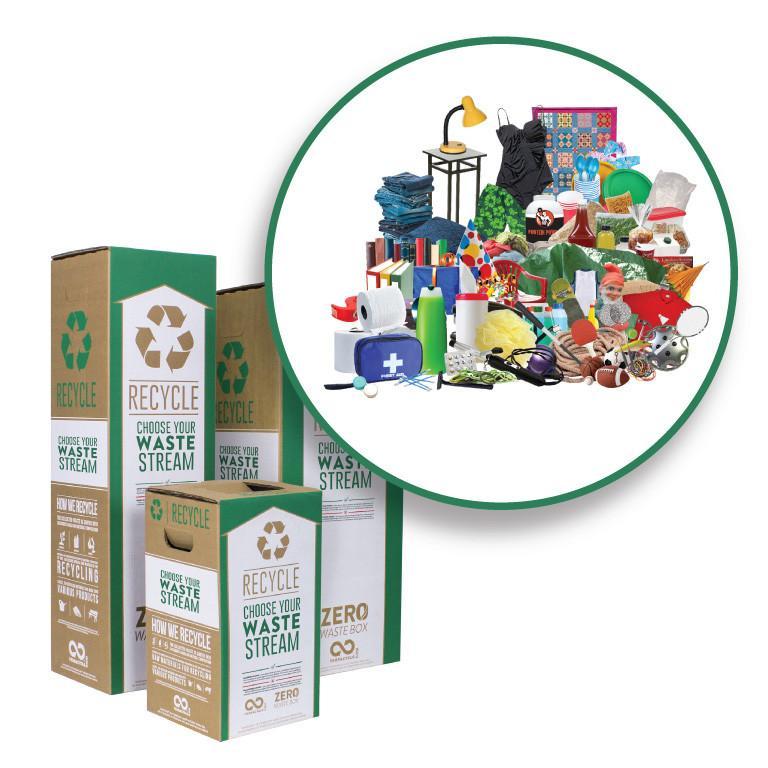How to Recycle Plastic Food Packaging and Plastic Film
Recycling plastic film is not as easy as recycling bottles curbside — but there are a few ways to do so!
Updated April 30 2020, 5:53 p.m. ET
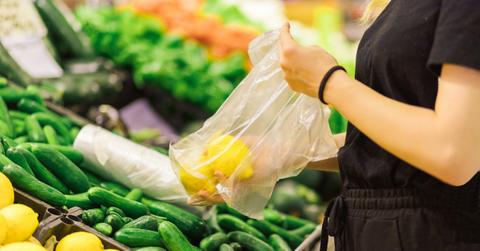
With grocery shelves quickly emptying out, bulk bins closed, and reusable grocery bags banned, you’ve probably found a lot more single-use packaging entering your home than usual during the COVID-19 quarantines. But if you do your best to live a zero-waste lifestyle, you may be wondering if plastic film recycling is possible.
While recycling plastic food packaging and plastic film bags isn’t as simple as recycling other materials, there are certainly ways to recycle plastic film and keep it from going to the landfill.
Read on for everything you need to know about recycling plastic food and film packaging.
What is plastic film recycling?
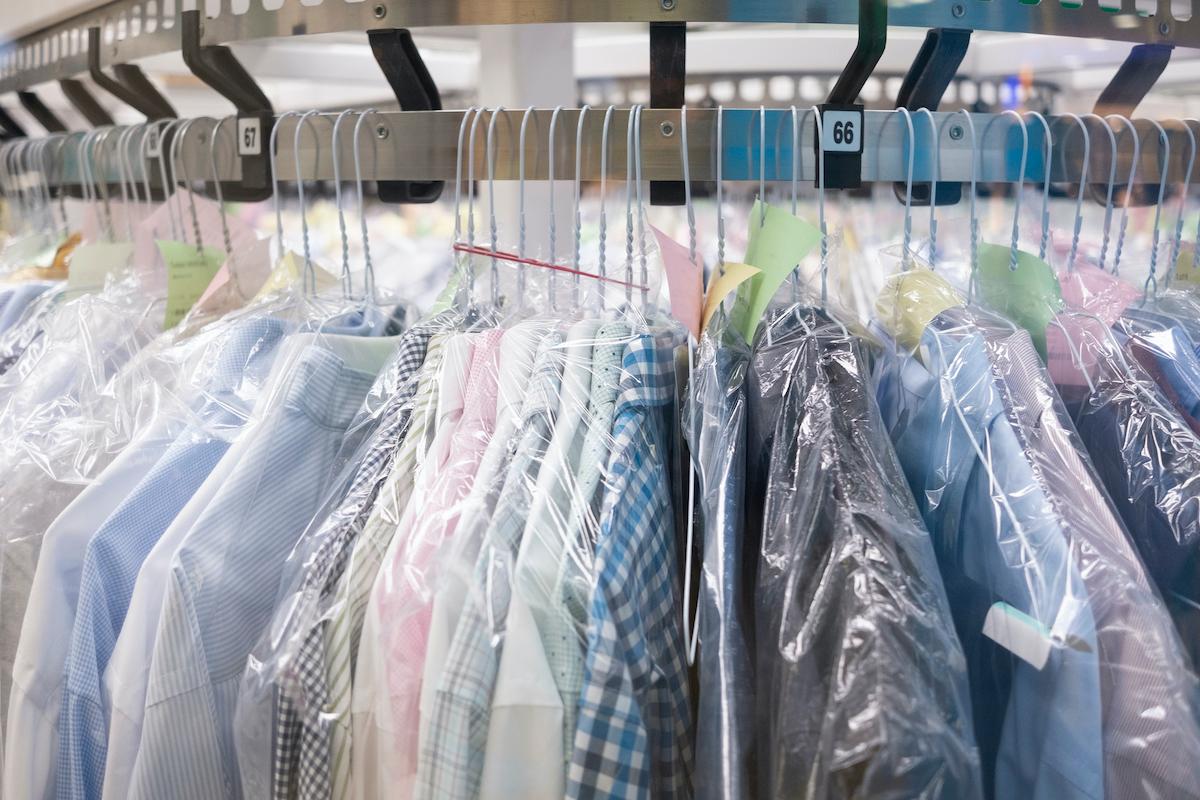
Plastic film refers to soft, flexible plastic packaging — most typically, film packaging means the thin, stretchy single-use plastic used to make shopping bags, produce bags, dry cleaning bags, and more. However, plastic film can also refer to other slightly less flexible plastic packaging, such as the plastic bags used to package snacks, frozen food, lettuce, and more.
Is plastic film recycling possible?
Most municipalities do not recycle plastic film curbside — so don't put any plastic film in your home recycling bin — but luckily, many municipalities require grocery stores and pharmacies above certain sizes to offer drop-off bins for plastic film recycling. Generally, big-box grocery chains are a safe bet when looking for film recycling, such as Target, Walmart, and Whole Foods. If you don’t see a film recycling bin when you enter the store, ask at the customer service desk.
The availability of plastic film recycling varies from city to city, so you’ll have to do research to find out which local store is your best bet for dropping off your plastic film recycling. You can look up local drop-off points on Earth911.
Which plastic film can be recycled in stores?
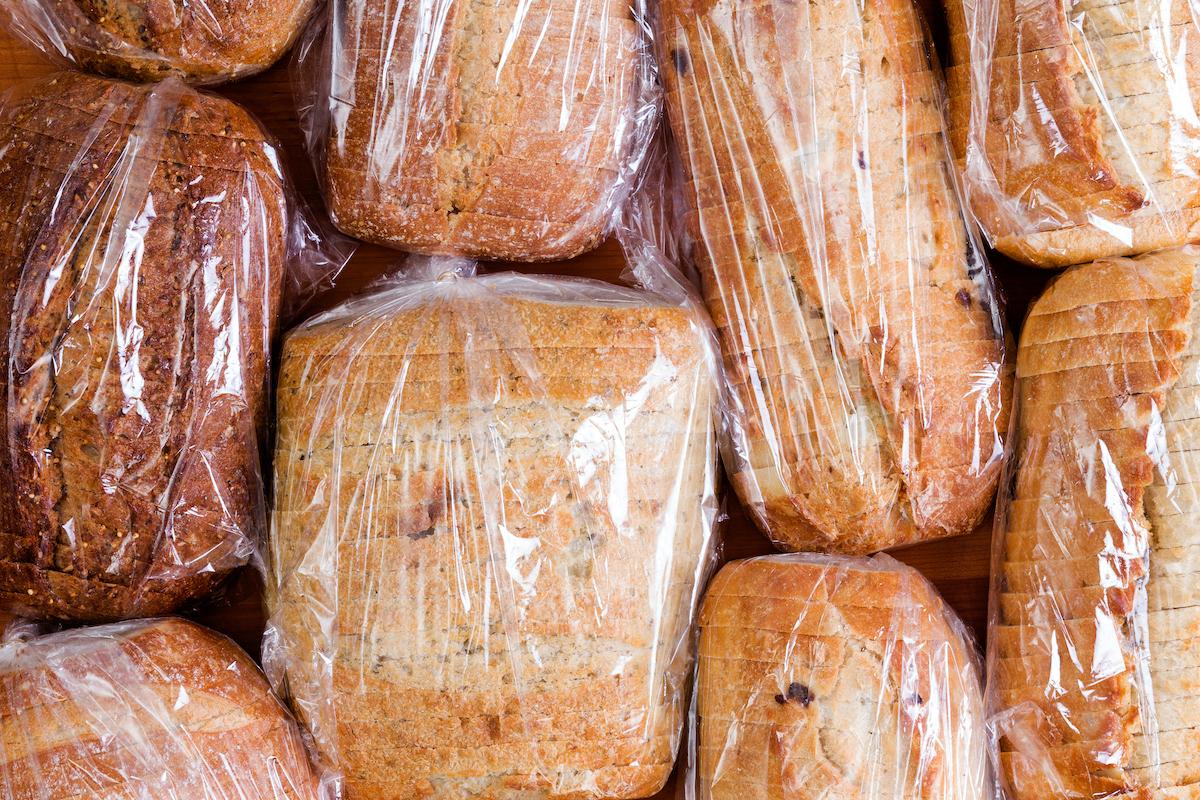
According to Earth911, the following items can generally be recycled at drop-off film recycling bins:
- Grocery and retail bags
- Newspaper bags
- The outer plastic wrapping from napkins, paper towels, toilet paper, and diapers
- Bread bags (and other thin, stretchy bags, such as those packaging rice or sometimes cereal)
- Dry cleaning bags
- The outer wrapping from bulk beverages
- Produce bags
- Bags labeled No. 2 or No. 4
Before dropping any of these bags off for film recycling, make sure they are completely clean and dry. If any of your plastic was used as food packaging, simply wash it and let it dry before recycling.
Plastic film recycling during the coronavirus is possible, but can wait.
Most people are limiting grocery store trips during the coronavirus pandemic, and many people are also staying out of grocery stores entirely. So while you may otherwise bring plastic film to drop-off bins fairly often, it’s understandable if that’s not a possibility right now.
The organization Plastic Film Recycling is urging people to recycle plastic film packaging only when and where it’s possible to do so safely. According to the organization, some stores have even paused plastic film recycling for the moment. So for now, Plastic Film Recycling recommends collecting your plastic at home until the pandemic slows down and going into stores is safer. In the meantime, use one plastic bag to store all the other ones that you plan on recycling.
Which plastic film cannot be recycled in stores?
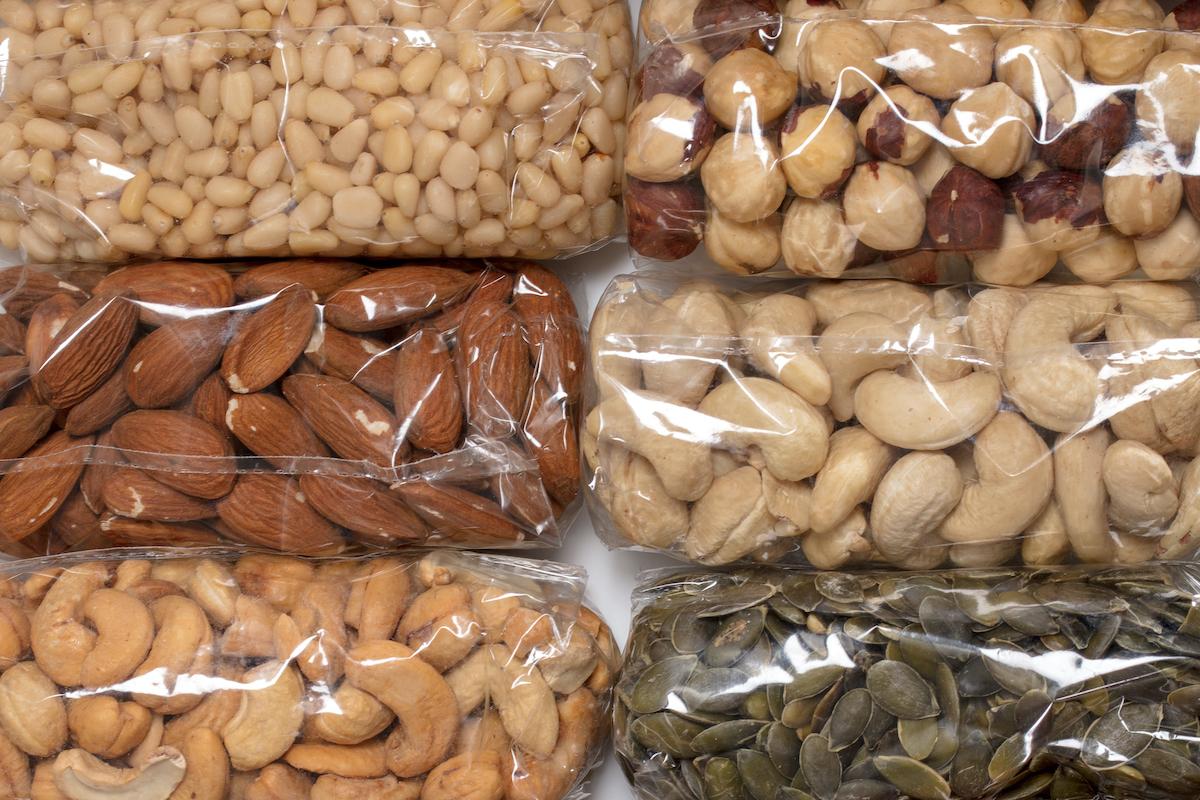
According to Earth911, unless it is labeled with No. 2 or No. 4, the following items cannot be recycled at supermarket drop-off bins:
- Food packaging or cling wrap
- Prepackaged food bags (such as frozen food bags, lettuce salad bags, etc.)
- Plastic film that is contaminated with paint or glue
But just because you can’t recycle the above items in stores doesn’t mean you can’t recycle them at all.
How to recycle non-recyclable plastic packaging.
If you are doing your best not to send anything to landfill, there are a few options for the plastic film that can’t be recycled in grocery store drop-off bins. The best option in the U.S. is TerraCycle.
If you’re not familiar, TerraCycle is a company offering various national recycling programs, allowing people to recycle numerous otherwise non-recyclable items, from snack packaging to cigarette butts to industrial waste to Swiffer pads to pens to baby food pouches to Brita filters to coffee pods to razors… the list goes on. Most of these programs are free, thanks to brand sponsorships — and some of the programs are not brand exclusive.
For example, TerraCycle’s Snack Bag Recycling Program accepts snack bags of all sizes and from all brands. To participate, all you need to do is register for a free TerraCycle account, sign up for the program you’d like to use, print out the prepaid mailing label, attach it to a box filled with your clean and dry plastic waste, and put it in the mail.
If you have a variety of plastic waste and want to send it all in together rather than contribute to several programs, another great option is TerraCycle’s Zero Waste Boxes. These boxes come with a fee (usually starting around $100), but can help people recycle some very random items that don’t have brand sponsorships, such as hair (yes, hair), laminated paper packaging, office supplies, paint brushes, party decorations, sporting goods, stuffed animals, used chewing gum, and more.
There’s also TerraCycle’s All-In-One Zero Waste Box, which allows you to recycle any non-organic and non-hazardous waste. This box starts at $199 — but before you shell out the cash, consider asking your employer to invest in one at work or asking an administrator to invest in one at your school, to help reduce their environmental impact.
You can also do some research to see if any businesses in your area have communal Zero Waste Boxes — for example, in New York City, both locations of the zero-waste shop Package Free have these boxes available for customer use.
How does plastic film recycling work?
According to Plastic Film Recycling, plastic film is often broken down into small pellets, which are then turned into bags, containers, pipes, crates, and more. Plastic film is also often turned into composite lumber, which can then be used to make outdoor structures such as decks, benches, and playground sets.
Plastic waste recycled through TerraCycle are typically melted and turned into pellets, which are then molded into various new recycled plastic products.
The best way to prevent contracting or spreading coronavirus is with thorough hand washing and social distancing. If you feel you may be experiencing symptoms of coronavirus, which include persistent cough (usually dry), fever, shortness of breath, and fatigue, please call your doctor before going to get tested. For comprehensive resources and updates, visit the CDC website. If you are experiencing anxiety about the virus, seek out mental health support from your provider or visit NAMI.org.
